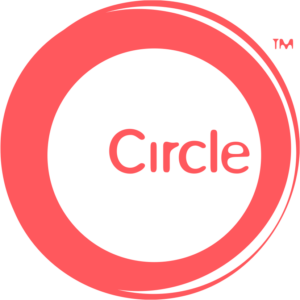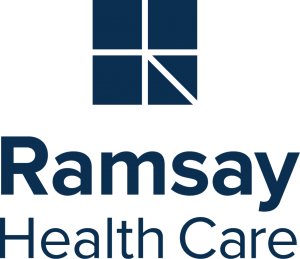Statement from EIDO Healthcare on the High Court ruling concerning Deborah Biggadike v Kamilia El-Farra and Sohier El-Neil 2024
The above case revolves around allegations of defective informed consent and poor record-keeping practices in relation to a claimant (Ms Biggadike) who underwent multiple urogynaecological procedures. The case is complex, and the judgment runs to some 403 paragraphs. Central to the claim was the alleged failure of the first defendant (El-Farra) and the second defendant (El-Neil) to take Montgomery-compliant consent, with particular criticism of the colposuspension procedure performed by El-Neil. The case also examined the ‘first-stage’ test upheld by the Supreme Court in McCulloch v Forth Valley Health Board [2023] UKSC 26. This test, grounded in the Bolam/Bolitho principles, considers the role of NICE Guidelines in determining whether an alternative treatment is clinically viable. The conclusion of the Court depended on the reliability or otherwise of the evidence given by the two experts, what they had recorded in the patient’s notes, and when.
The judge found that while El-Farra had followed appropriate consent processes, supported by EIDO leaflets, El-Neil had been negligent for failing to disclose critical diagnostic results, thereby invalidating Ms Biggadike’s consent to surgery.
The Court found that El-Neil’s retrospective annotations in medical records, presented as contemporaneous, were fabricated to justify clinical decisions, further undermining her case. The claimant was awarded significant damages (£500k), emphasising the importance of transparency, informed consent, and robust clinical record-keeping. El-Neil has recently been suspended by the GMC in separate Tribunal proceedings relating to dishonesty and poor consent processes.
This High Court decision underscores critical lessons for healthcare providers. EIDO Healthcare strongly advocates for the highest possible standards of patient information, transparency, accuracy, and patient engagement in both informed consent processes and clinical record-keeping.
At the heart of this case lies the question of informed consent—whether the patient was given adequate, accurate, and timely information to make decisions about her care. The judge highlighted the key role of patient information leaflets, referencing EIDO documents as the ‘gold standard’ [paragraphs 44 and 182 of the judgment]. Our documents are designed to ensure that patients are fully informed of the Benefits, Risks, and Alternatives of surgical procedures, as well as the implications of doing Nothing (BRAN). In this case, four EIDO documents helped establish that authoritative information was made available, contributing to the El-Farra’s defence of proper consenting practices. Accordingly, the judge found that El-Farra had not been negligent.
The case also demonstrates the consequences of inaccurate record-keeping that fails to meet professional standards. The court found that El-Neil’s annotations in medical records, claimed to be contemporaneous, were instead retrospective additions designed to justify clinical decisions. This lack of transparency undermines trust—not only between patients and providers but also in the integrity of the healthcare system. Transparent, contemporaneous, and accurate record-keeping is not just a procedural necessity; it is a cornerstone of patient safety and legal compliance.
The implications of this case go beyond the courtroom. They reinforce the essential connection between quality patient information and robust clinical processes. When healthcare professionals use authoritative materials like EIDO’s leaflets, they ensure patients receive consistent, clear, and evidence-based guidance. This includes, where relevant, NICE Guidelines, which the judge in the Biggadike case recognised as carrying some authority, albeit without the force of law. This approach empowers patients to make informed decisions and strengthens the foundation of shared decision-making, a key principle enshrined in the Montgomery ruling. The court found that, despite Ms Biggadike’s assertions that she was not properly informed by El-Farra, she had indeed been supplied with gold-standard EIDO documents that laid out the information she would need to help her make an informed decision. This was critical to El-Farra’s defence.
EIDO Healthcare is committed to supporting clinicians with tools that enhance the consent process and safeguard both patients and healthcare providers. Our documents are rigorously reviewed and certified to ensure accuracy and accessibility, enabling healthcare professionals to meet the highest standards of patient communication. However, even the best resources cannot stand alone—they must be integrated into a culture that prioritises clear, honest dialogue and meticulous record-keeping.
This case also serves as a stark reminder of the vulnerability of patients during their healthcare journey. Informed consent is not a one-time event; it is an ongoing process of communication, understanding, and trust. It demands a clear, consistent flow of information, supported by accurate documentation, to reflect what was said and agreed upon at each stage.
Since the decision in the Biggadike case, two further High Court decisions have highlighted the need for accurate and professional record keeping in the context of consent to treatment. In SD v (1) AR (2) JT [2024] 2444 explained that failure to record a risk on the consent form could be a determinative issue in deciding whether a clinician had given the relevant warning, (although that was not so in this case). In Winterbotham v Shahrak [2024] EWHC 2633 (KB), a case concerning consent to a dental procedure, the court ruled in favour of the claimant. The decision was based on the defendant’s failure to explain the material risks of the proposed treatment and to provide the claimant with an opportunity to discuss those risks or ask questions about the likelihood of them happening.
EIDO calls on healthcare organisations to ensure that informed consent processes are fully compliant with Montgomery principles and supported by transparent, verifiable record-keeping practices. When these elements come together, they not only protect patients but also support decision-making, reduce litigation risks, and foster trust in healthcare professionals and systems.
This case is a powerful example of why gold-standard patient information and good record-keeping are non-negotiable in modern medical practice. Together, these pillars form the foundation of safe, ethical, and patient-centred care.
If you would like any more information, please speak to your EIDO Healthcare customer account manager or email [email protected]











